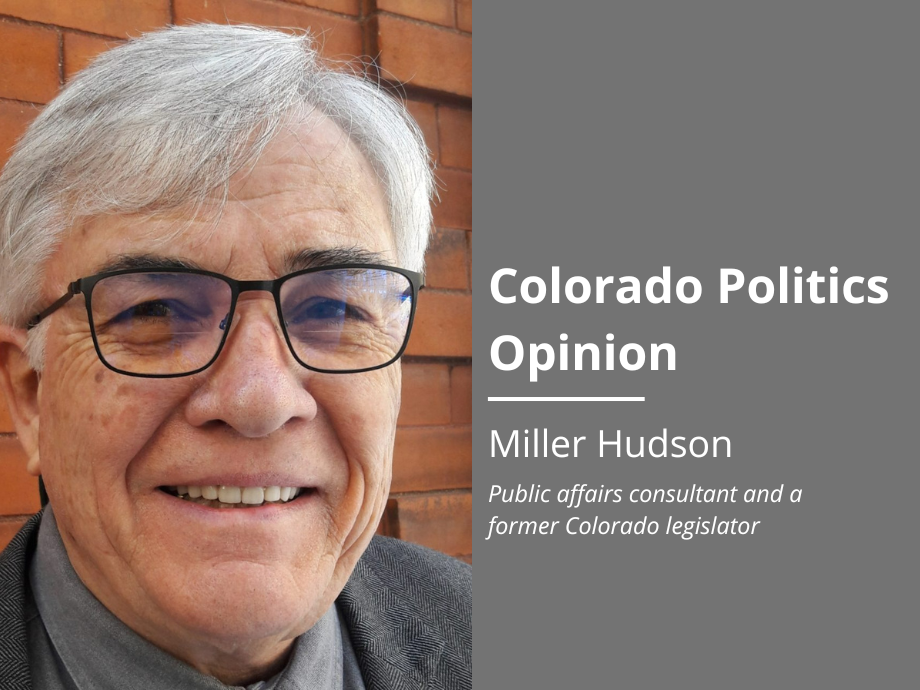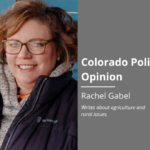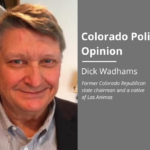Fixing the unfixable | HUDSON


If you were hoping the Denver Mayoral race would put Colorado politics to bed for the remainder of 2023, think again. Question HH is headed to the ballot in November. And, as a daily sideshow, the former guy in the White House will be attempting to lure his Republican primary challengers into a cage match, frequently pitting them against DeSantis. Come primary season in 2024, Republican survivors will look like they spent a season in the Yukon with the Yellow Jackets, minus the cannibalism, while Donald J. Trump will be bronzed, rested and ready for mortal combat.
Voters shouldn’t let this sideshow distract them from the war likely to erupt over the legislature’s “fix” for looming property tax increases.
Since TABOR was ostensibly designed to preclude sudden tax hikes without voter approval, and property taxes most reviled of all, you may wonder how this has occurred. Was Doug Bruce shortsighted or simply asleep at the switch? More the former than the latter. Placing tax and revenue provisions into the state constitution is premised on the notion that the basic workings of our economy will remain constant over time. After a few minutes thought, it becomes apparent this presumption is absurd. Technology changes. Attitudes change. Behavioral norms change. Acting together, these changes also change the economy.
We buy different things. We value the new things we buy differently. We save more or less of our incomes. We now purchase more services and fewer things. Since taxes are designed to skim a tolerably modest toll from economic exchanges, over time a system petrified in historic assumptions will grow less efficient and more punitive. It’s all well and good to freeze assessment rates, but once Colorado home prices started to accelerate it was predictable tax revenues would grow as well. Local governments have remained mum about this windfall as other sources, especially sales tax collections, have been shrinking. In a non-TABOR world, legislators could adjust tax policy. But, not in Colorado.
Stay up to speed: Sign-up for daily opinion in your inbox Monday-Friday
My assessment jumped 47% this year, right at the Colorado average. Statewide, increases were not uniform, however. Following repeal of the Gallagher Amendment two years ago, rural areas evidence little change in property values while urban and suburban districts with substantial commercial areas have experienced the largest hikes in residential assessments. Senate bills 303 and 304, which were introduced together with a companion House measure just days before the end of the recent legislative session, propose a complex set of fiscal maneuvers. They are intended to partially protect home owners against onerous tax liabilities during the next two years. This is only the most recent bandage applied to hide Tabor’s fiscal cancer.
The major device for resolving the current crisis is to redirect the bulk of TABOR refunds in order to backfill property tax collections in smaller counties and special districts. This cannot proceed without an approval from voters. Thus, the necessity for Proposition HH on the 2023 ballot. As should have been expected, fiscal conservatives are wailing that government is filching dollars that would have otherwise been refunded directly to residents. They protest taxpayers are being asked to bail out property tax obligations with their own dollars. No surprise there. Where else would legislators have found the money?
Securing the support of Colorado Concern and the millions of dollars in campaign funds it can raise from the business community, it appears likely Polis can sell this plan to taxpayers. The real question is whether residents will be willing to forfeit less than $100 in a refund to stave off an additional few thousand dollars in property taxes? Whatever you may feel about the ethics or morality of this trade, you have to be pretty thick to vote no. Let’s not kid ourselves. We are merely placing a 6-inch square adhesive patch atop the half dozen band-aids we’ve previously applied. The TABOR cancer infection will continue to putrefy Colorado’s fiscal muscle.
The Gallagher amendment “fix” provided two years of jury-rigged relief and now HH offers another two-year remedy before legislators have to conjure up yet another remedy. The fiscal legerdemain voters are being asked to approve includes raising the TABOR spending cap by an extra 1% annually over the next 10 years. In 2025 new legislators will return to the Capitol to find a jar of spackling paste, scissors and glue. It’s rumored this 1% escalator was designed by former State Treasurer Cary Kennedy, who included a similar mechanism to boost public school funding in a decade old amendment.
Kennedy is perhaps the most knowledgeable finance manager in Colorado. Yet, the legislature is currently the better part of a billion dollars in arrears meeting its school funding obligations. Additional budget appropriations have moved Colorado educators from last place to 45th in the nation, so there has been progress. If Cary has a master plan in mind for stabilizing taxes in the decade ahead, I hope she shares it soon.
Miller Hudson is a public affairs consultant and a former Colorado legislator.












